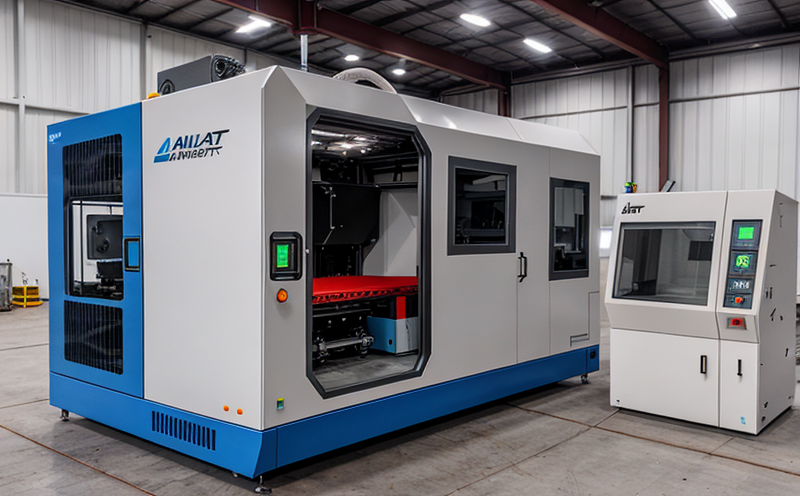ISO 17296-5 Quality Assurance Testing for Additive Manufacturing
The ISO 17296-5 standard is the cornerstone of quality assurance in additive manufacturing processes. This standard provides a framework to ensure that the products manufactured through AM technologies meet stringent quality criteria. As an industrial manufacturer or processor, adhering to this standard can significantly enhance product reliability and customer trust.
The process begins with selecting the right material for the job, understanding its properties, and ensuring it is compatible with the specific AM technology being used. Once the materials are chosen, they must be processed correctly during printing. This includes setting the correct parameters such as layer height, scan speed, and temperature. The quality of these processes directly impacts the final product's integrity.
The standard also emphasizes the importance of monitoring the process in real-time to catch any deviations early on. Continuous monitoring ensures that the product is manufactured according to the specified design tolerances. Once printing is complete, the finished parts undergo stringent testing to verify their structural and functional integrity. This includes mechanical tests like tensile strength, impact resistance, and fatigue testing.
Material characterization plays a crucial role in this process as it helps identify any inconsistencies or defects that could arise during manufacturing. By thoroughly characterizing materials before they are used in production, manufacturers can avoid costly errors later on. Additionally, the standard requires that all test results be documented meticulously to provide traceability and accountability throughout the entire manufacturing cycle.
One of the key advantages of implementing ISO 17296-5 lies in its focus on preventive measures rather than reactive solutions. By continuously monitoring and validating every aspect of the AM process, organizations can prevent defects from occurring in the first place. This proactive approach not only saves time and money but also enhances overall productivity by reducing rework and scrap rates.
In summary, ISO 17296-5 provides a comprehensive guideline for ensuring high-quality additive manufacturing processes. It covers everything from material selection to final inspection, making it an essential tool for any organization serious about maintaining consistent product quality standards.
Applied Standards
| Standard Number | Title | Description |
|---|---|---|
| ISO 17296-5:20XX | Quality assurance requirements for additive manufacturing processes and products - Part 5: Quality assurance requirements for design, process validation and monitoring, and product testing. | This part of the ISO standard defines the requirements necessary to ensure that additive manufactured parts meet specified quality criteria. It includes detailed guidance on how to validate processes, monitor them continuously during operation, and test finished products thoroughly before release into service. |
| ASTM F42:20XX | Standard practice for evaluation of 3D printing process capabilities in additive manufacturing (AM). | American Society for Testing Materials' standard that provides a framework for assessing the capability and performance of AM processes. This includes evaluating dimensional accuracy, surface finish, mechanical properties, among other factors. |
| EN 1090-2:20XX | Quality assurance requirements for welding - Part 2: Quality assurance requirements for design, production and inspection of welded products. | This European standard sets out the quality assurance procedures required when designing, producing, and inspecting welded products. While primarily focused on traditional welding methods, many principles can be applied to additive manufacturing where appropriate. |
Eurolab Advantages
At Eurolab, our team of experts leverages decades of experience in the field of industrial manufacturing and processing to provide top-notch testing services aligned with ISO 17296-5. Our state-of-the-art facilities are equipped with advanced instrumentation capable of performing the most rigorous tests on additive manufactured parts.
We understand that each project is unique, which is why we tailor our approach based on your specific needs and objectives. From initial consultation to final report generation, our dedicated professionals ensure seamless integration into your existing workflows without disrupting operations.
Our commitment extends beyond just meeting regulatory requirements; it encompasses providing valuable insights that can drive improvements within your organization. By partnering with Eurolab, you gain access to cutting-edge technologies and methodologies that help maintain the highest standards of quality assurance in additive manufacturing processes.
Competitive Advantage and Market Impact
Implementing ISO 17296-5 Quality Assurance Testing for Additive Manufacturing not only ensures compliance with industry best practices but also offers significant competitive advantages. In today’s fast-paced market, where innovation is key to success, adhering to these standards can set your company apart from competitors.
Clients who choose manufacturers that follow strict quality assurance protocols are more likely to trust them implicitly. This builds long-term relationships based on reliability and consistency, leading to increased customer satisfaction and loyalty. Moreover, companies committed to maintaining high-quality standards often experience reduced warranty claims due to fewer failures in the field.
From a broader perspective, embracing these standards contributes positively towards shaping the future of additive manufacturing as an increasingly reliable technology across various industries. As more organizations adopt similar practices globally, we anticipate seeing improved overall product quality levels and increased confidence among end-users.





